10 Natural Remedies for Varicose Veins
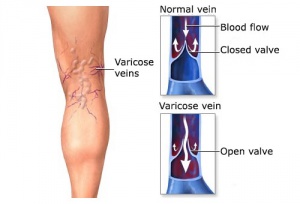

Reviewed and approved by Doctor Carlos Fabián Avila
Varicose veins are very unpleasant when they appear. They generally appear on a person’s legs, and sometimes their face. This can be devastating to anyone’s self-esteem.
Varicose veins appear as the result of several factors, including pregnancy, genetic factors, weight gain, hormones or a job where you spend the majority of your time sitting down.
Our Favorite Natural Remedies for Varicose Veins
There are actually a few ways of getting rid of varicose veins, although some are quite costly.
The good news is that there are also inexpensive, natural remedies for varicose veins that are safe to use. Not only will you save money, but they may get you similar, or even better, results.
Ginger
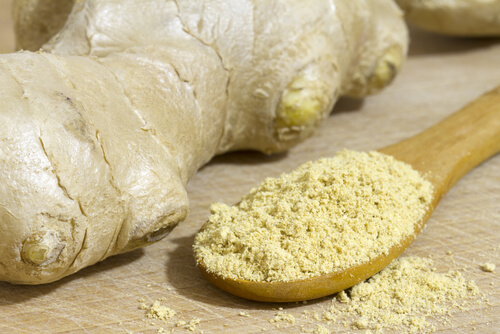
This plant is rich in anti-inflammatory compounds. Because of this, it may naturally reduce your pain and the appearance of varicose veins.
Ginger is great for hoping to improve circulation and keep varicose veins from forming.
Place a small amount of ginger extract mixed with some vitamin E directly onto the affected areas of skin. We think the results of this natural remedy are pretty amazing, so hopefully, you do too.
Garlic
Garlic contains tons of compounds with anti-inflammatory properties.
To use it as a natural remedy for varicose veins, crush up 5 garlic cloves. Then, eat them raw with a little lemon juice to improve the taste.
You might like:
How to Make a Garlic and Lemon Ointment for Varicose Veins
Garlic may reduce excess proteins in your body. In consequence, this could help reduce the appearance of those unsightly veins.
Onion
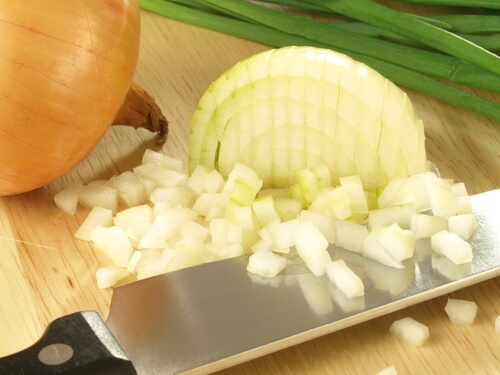
Onions are an excellent natural remedy for helping with the proper assimilation and distribution of proteins in your body.
This means that onions can be a great natural remedy for varicose veins. It may keep them from forming, and from becoming visible on the surface of your skin.
Just be sure and get your daily fix of raw onions and you’ll be good to go. Eating onions every day helps keep your body healthy and revitalizes your skin.
Brahmi
This plant is originally from India and considered an effective natural remedy for varicose veins. Especially in the field of Ayurvedic medicine.
Brahmi contains vitamins that are essential for keeping a good skin tone. Apply directly to the legs for excellent results.
Rosemary
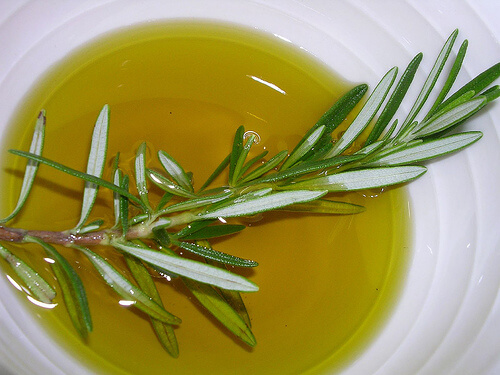
Rosemary is useful for fighting stress and depression, but it’s also great for varicose veins. It’s a common ingredient in skin care products because it can help improve circulation.
St. John’s Wort
It doesn’t matter if it’s used internally or externally, St. John’s Wort is an ideal way for helping to eliminate varicose veins.
Apply St. John’s Wort oil directly on the affected area. It can also be made into a tea.
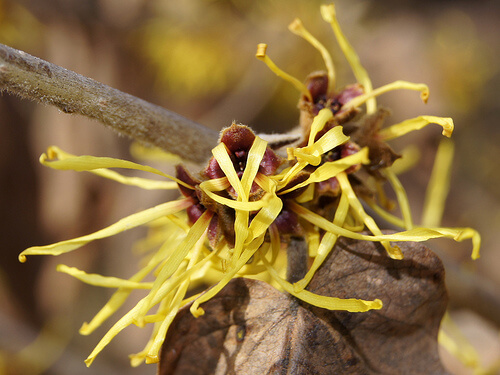
Witch Hazel
This is a pretty uncommon herb, but it’s very useful if you can find it. Witch hazel has anti-inflammatory properties and is therefore beneficial in reducing varicose veins.
You might like:
8 Foods that Improve Your Skin Health
It’s generally taken as a tea, but can also be applied as a compress to the affected area. It has a high concentration of essential oils, gallic acid, and tannins, which are all great for helping to keep your skin healthy.
Butcher’s Broom
This plant contains an active compound called ruscogenin, which may help reduce inflammation and vein obstruction.
It has the added benefit of aiding in strengthening and tightening your blood vessels. It’s recommended to consume at least 100 mg a day to get maximum benefits.
Guggul
This is another traditional plant from Ayurvedic medicine. It properties that may reduce inflammation in the blood vessels and the appearance of varicose veins as a result. Guggul may also help improve circulation and skin health.
Echinacea
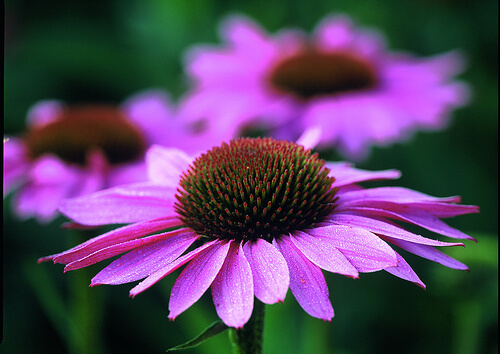
Echinacea is well-known for strengthening the immune system, but it could also a great solution for varicose veins.
It’s good at helping to reduce inflammation and acts as an analgesic for the pain associated with varicose veins.
We truly hope you’ve found this information useful. Remember to consult your doctor if you’re suffering from any chronic conditions or if you notice any adverse reactions after using these natural remedies for varicose veins.
All cited sources were thoroughly reviewed by our team to ensure their quality, reliability, currency, and validity. The bibliography of this article was considered reliable and of academic or scientific accuracy.
-
Dodd, H., & Wright, H. P. (1959). Vulval varicose veins in pregnancy. British Medical Journal, 1(5125), 831.
-
Ernst, E. (2002). Herbal medicianl products during pregnancy?. Phytomedicine, 9(4), 352.
-
Fabi, S. G., Peterson, J. D., Goldman, M. P., & Guiha, I. (2012). An investigation of coagulation cascade activation and induction of fibrinolysis using foam sclerotherapy of reticular veins. Dermatologic Surgery, 38(3), 367-372.
-
Mazid, M., Khan, T. A., & Mohammad, F. (2012). Medicinal plants of rural India: a review of use by Indian folks. Indo Global journal of pharmaceutical sciences, 2(3), 286-304.
-
Mekky, S., Schilling, R. S. F., & Walford, J. (1969). Varicose veins in women cotton workers. An epidemiological study in England and Egypt. Br Med J, 2(5657), 591-595.
- Ramelet, A. A., Boisseau, M. R., Allegra, C., Nicolaides, A., Jaeger, K., Carpentier, P., … & Forconi, S. (2005). Veno-active drugs in the management of chronic venous disease. An international consensus statement: current medical position, prospective views and final resolution. Clinical hemorheology and microcirculation, 33(4), 309-319.
-
Shoemaker, J. V. (1887). Hamamelis virginica. British Medical Journal, 1(1376), 1039.
-
Sing, P. K. (2019). Review on effect of long term standing posture on varicose veins and its management. National Journal of Research in Ayurved Science, 7(01).
This text is provided for informational purposes only and does not replace consultation with a professional. If in doubt, consult your specialist.








